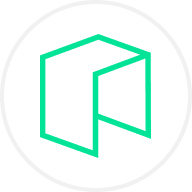In the dynamic landscape of blockchain technology and cryptocurrencies, there is a constant drive to bridge the divide between the decentralized web and the traditional internet.
To help facilitate this move, the Mask Network (MASK), an innovative platform dedicated to connecting social networks with blockchain technology, has emerged to help the world transition from Web2 to Web3.
What is Mask Network
Mask Network is a distinctive combination of protocols and applications designed to introduce the functionality and benefits of blockchain to the mainstream. The Mask Network intends to be a gateway that allows its users to access the world of Web3 through its extension. With Mask Network, users can experience trading cryptocurrencies, access decentralized finance (DeFi) platforms, and explore the world of non-fungible tokens (NFTs), all while leisurely browsing their Twitter or Facebook feeds. The platform also wishes to tackle social media security issues, allowing users to keep their content hidden and only show it to their intended audience.
The Mask Network team
Suji Yan, an experienced entrepreneur and investor with deep knowledge of the blockchain industry, leads the team at Mask Network. Supporting him are key members such as Zhu Hua, who serves as the CTO, and Zheng Jie, the COO.
Together, they are actively involved in a range of projects focused on decentralizing and securing the internet. This includes the development of a decentralized messaging system, a secure decentralized file storage solution, and a payment platform built on the principles of decentralization. The team is dedicated to their mission of creating a safer and more decentralized internet environment.
How does Mask Network work
Mask Network operates based on the fundamental objective of seamlessly connecting social media platforms with the decentralized web. It accomplishes this through the utilization of a browser extension, which serves as a gateway for users to access and engage with decentralized applications (dApps) directly within their familiar social media interfaces.
The following are key components that drive the functionality of Mask Network:
- Mask Network plugin: serves as the core tool that integrates Mask Network's features into social media platforms. Through this plugin, users gain the ability to send and receive encrypted messages, trade cryptocurrencies, interact with DeFi platforms, and engage with NFTs all within their social media feeds.
- Decentralized Social Networking (DApplets): these are decentralized applications seamlessly integrated into the Mask Network plugin. By leveraging DApplets, users can perform a wide range of tasks, including trading crypto assets, entering into loan agreements, conducting polls, and more, all directly from their social media pages.
MASK tokenomics
The economic structure or tokenomics of the Mask Network revolves around its native utility token, MASK. The total supply of MASK tokens is capped at 100 million.
MASK tokens are distributed to users through various mechanisms, such as liquidity mining, rewards for content creation, and network participation.
MASK use cases
MASK tokens offer diverse utility within the Mask Network ecosystem. They serve as a governance token, empowering holders to participate in decision-making processes that shape the network's development.
Moreover, MASK tokens can be staked in DeFi protocols, allowing users to earn rewards or participate in yield farming. Furthermore, the tokens have functionality in the realm of NFTs, enabling users to create, purchase, sell, or auction these unique digital assets.
MASK distribution
The distribution of MASK tokens is as follows:
- 30 percent: Public sale
- 15 percent: Mask Network team
- 10 percent: Ecosystem partners
- 20 percent: Liquidity mining
- 25 percent: Community airdrops
The road ahead of Mask Network
In the short term, Mask Network has its eyes set on extending its reach to incorporate more blockchains and DApps.
Over the long haul, Mask Network aspires to establish itself as the default choice for ensuring privacy in the blockchain sphere. The team wants to make MASK a network where users can freely exchange encrypted messages, navigate the web in a private mode, and utilize DApps without constantly worrying about their data being monitored or commercialized.






































